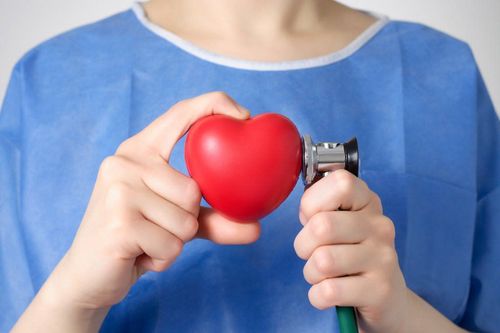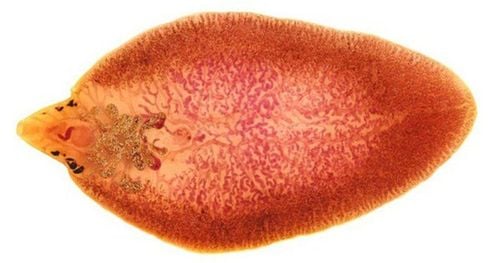This is an automatically translated article.
Myocarditis is an acute or chronic infection of the heart muscle, which is the result of a variety of viral, bacterial, parasitic or fungal infections. What are the symptoms of myocarditis? Is myocarditis dangerous? How to prevent myocarditis? All the above questions will be answered in the article below.
1. What is myocarditis?
Myocarditis is an infectious disease of the heart muscle with a very diverse clinical picture, from cases with unique manifestations to very severe cases.
Myocarditis is the result of infection with many viruses, bacteria, parasites or fungi, but the most common cause is some specific viruses.
Besides infection, myocarditis can be caused by direct poisoning with toxins (such as taking anti-cancer and anti-immunotherapy drugs, antibiotics, chemical contamination of arsenic, lead, mercury, cobalt, radiation exposure, etc.) heat shock, hypothermia,...) or due to immune-mediated reactions, systemic immune disorders (eg: sarcoidosis or systemic lupus erythematosus, acute rheumatic fever, graft rejection state after organ transplant,...)
2. What are the symptoms of myocarditis?
The clinical presentation of myocarditis may present inconspicuously, or present with massive fulminant heart failure or a critical arrhythmia. How clinical symptoms manifest depend on the cause of the myocarditis, as well as the severity of the lesion and the extent of the disease.
Many patients may present with only mild symptoms such as chest pain (in the presence of pericardial effusion), fever, sweating, chills, and shortness of breath. In viral myocarditis, the patient may have a previous history of influenza-like syndrome (within 1 to 2 weeks) with signs such as fever, aching joints, fatigue or inflammation of the nose, throat or other symptoms. symptoms of upper respiratory tract infection. Epidemiological studies have shown that in adults, in myocarditis, there are more frequent cases of poor symptoms than in those with acute toxicity due to cardiogenic shock or severe heart failure (initiated myocarditis). QuickList). Symptoms such as palpitations, syncope, and even sudden death may also occur, due to ventricular arrhythmias or atrioventricular block (especially in giant cell myocarditis). In adults, the disease can lead to heart failure many years after the first symptoms of myocarditis.
3. Diagnosis of myocarditis
Diagnosis of myocarditis is based on the following 4 main criteria:
Clinical signs: Heart failure, fever, signs of viral infection (upper respiratory tract infection, muscle pain, joint fatigue,...), fatigue , shortness of breath on exertion, chest pain, palpitations, fainting or fainting. Laboratory investigations show structural or functional impairment of the heart in the absence of signs of ischemic heart disease (Echocardiography shows dilated cardiac chambers, regional hypertrophy, enzyme tests). Troponin increases). Cardiac Magnetic Resonance: Cardiac magnetic resonance can assess 3 markers of intracellular damage: Interstitial edema, Congestion and drainage, Necrosis and fibrosis. Endocardial biopsy is the gold standard for the diagnosis of myocarditis. If 2/4 of the above criteria are present: suggest myocarditis. If there are 3/4 criteria, it is similar to myocarditis. If 4/4 of the above criteria are present, the patient has myocarditis.
4. Is myocarditis dangerous?
Myocarditis can cause serious, irreversible complications for patients as follows:
Heart failure: Myocarditis, if not detected in time, can quickly damage the heart muscle and lead to heart failure. Since then, the heart is no longer able to pump blood to feed the body. Tachycardia or arrhythmia: A disorder of the heart muscle not only reduces its ability to pump blood, but also leads to arrhythmias. In severe cases, cardiac arrhythmias can lead to death. Sudden death: Patients with myocarditis experience a serious arrhythmia that can cause the heart to stop beating suddenly and lead to death. Heart attack and stroke: If the heart muscle is damaged, blood flowing in the heart can form a clot, and when this clot blocks one of the coronary arteries, causing an infarction. heart muscle. Or if a blood clot in the heart travels to an artery leading to the brain, it can cause a stroke.
5. Methods of treating myocarditis
Drug therapy:
Treatment of myocarditis includes symptomatic measures of acute heart failure, including diuretics, nitrates or nitroprusside, and ACE inhibitors. Inotropic agents such as dobutamine and milrinone may be needed in cases of severe decompensated heart failure, although they also increase the risk of arrhythmias. Long-term treatment also follows the same drug regimen, with ACE inhibitors, beta-blockers, and aldosterone antagonists. However, in some cases, some of these drugs may not be able to be used in the first place due to hemodynamic conditions. Treatment of concomitant infections or systemic infectious causes. The use of nonsteroidal anti-inflammatory drugs should be avoided in the acute phase because these drugs can slow down the recovery of cardiomyocytes, increase inflammation, and increase mortality. Anticoagulants should also be used prophylactically as for other causes of heart failure. Antiarrhythmic drugs should be used with extreme caution, because most antiarrhythmic drugs can reduce myocardial contractility and thereby worsen heart failure. In the case of severe myocarditis presenting with severe left ventricular failure, early consideration of artificial ventilation and circulatory support measures should be considered. Interventions are as follows:
Implantation of a ventricular assist device may be indicated for temporary circulatory support if needed in the event of cardiogenic shock. Heart transplant. Diet and living:
Apply a salt-reduced diet as in the treatment of common heart failure. Mode of living: should rest in bed and avoid intense activities during the acute phase.
6. How to prevent myocarditis
Currently, there is no specific prevention method for myocarditis, however, you can take some measures to limit the risk of the disease:
Implement myocarditis prevention by protecting clean birth, wash your hands often with soap, avoid the risk of infection. Eliminate drugs that increase the risk of disease and aggravate the condition (cardiogenic drugs, alcohol, beer, stimulants). Avoid high-risk behaviors for HIV-related heart muscle infections (No sharing of needles, safe sex, and no illegal drug use). Avoid contact with insects: Patients should minimize exposure of the skin exposed to insects (Wear long-sleeved shirts and long pants to cover the skin). Avoid bushy places, if you go to mountainous areas use insecticides. Vaccination against disease: Patients should be advised by their doctor to vaccinate against diseases, including rubella vaccines, flu vaccines, which can cause myocarditis. It is necessary to limit contact with people with influenza or viral infections until that person recovers, especially immunocompromised people, people with chronic medical conditions. Seek immediate medical attention if you have chest pain and shortness of breath while showing signs of infection or a viral infection. If you have severe symptoms, go to the emergency room right away or call for emergency medical help. Hopefully, the above information will help readers better understand myocarditis, dangerous complications and let patients have a sense of self-prevention of myocarditis.
Please dial HOTLINE for more information or register for an appointment HERE. Download MyVinmec app to make appointments faster and to manage your bookings easily.













